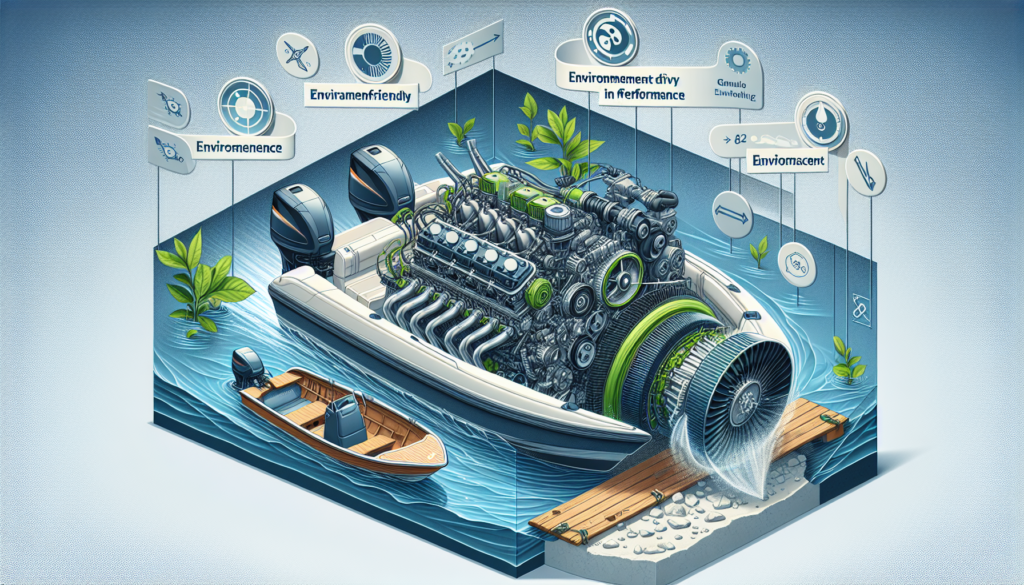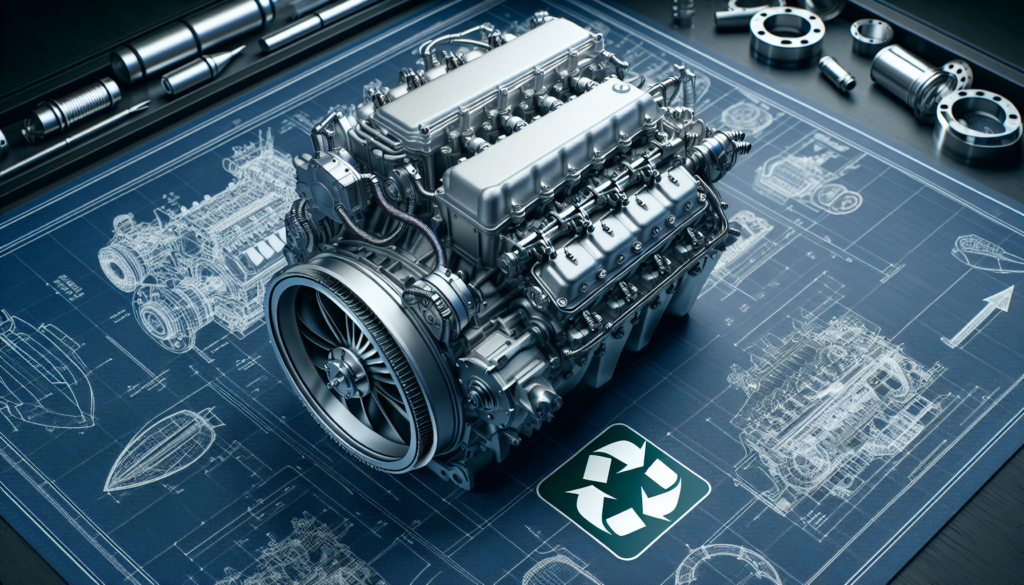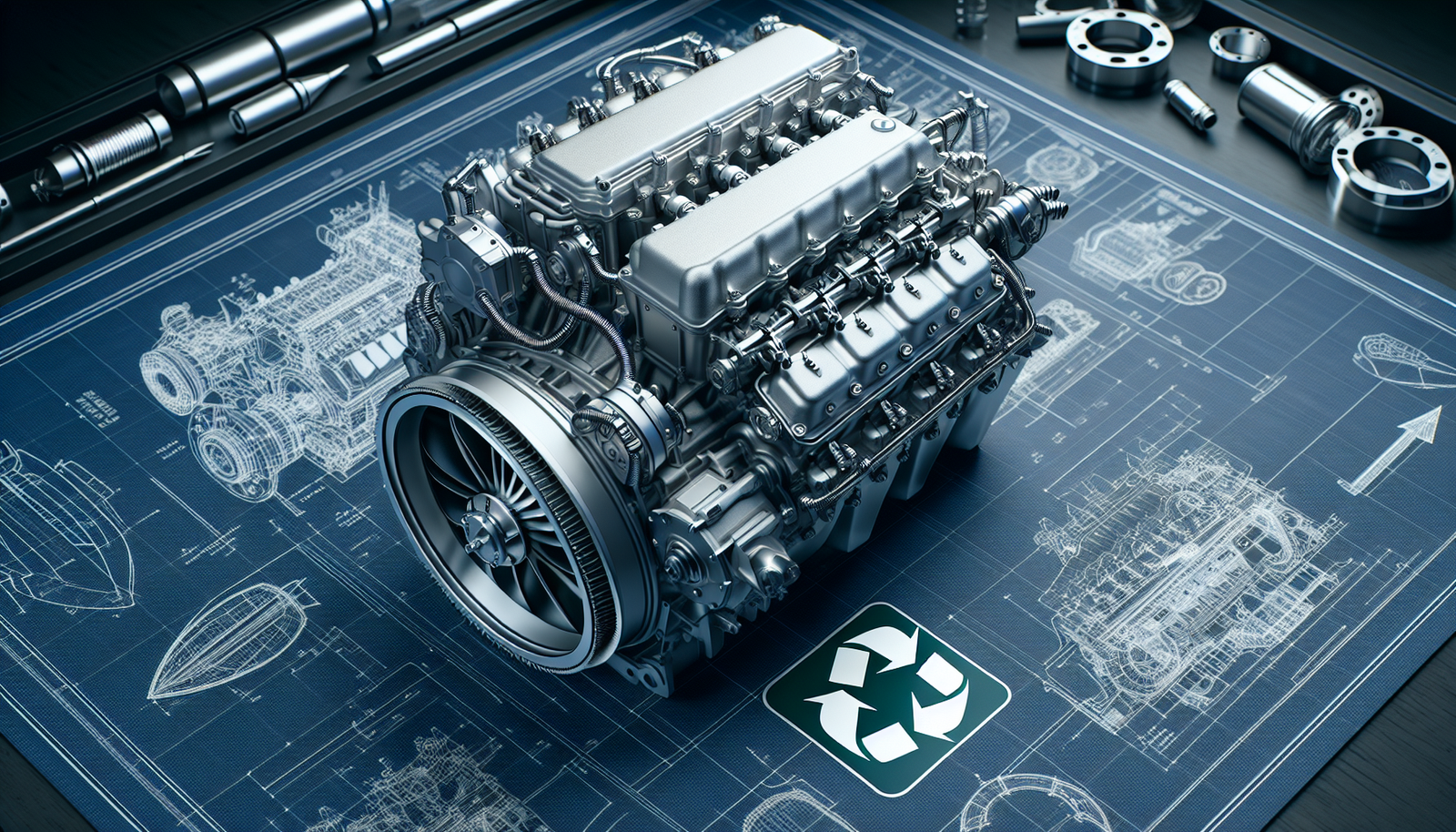If you’re someone who loves sailing and is always on the lookout for cutting-edge technology that can enhance your experience on the water, then you’ll be delighted to know about the best boat engine technology innovations of the year. From advanced propulsion systems to hybrid power solutions, these groundbreaking developments will transform the future of boating. You’ll be surprised at how these technological advancements can drastically improve your boat’s performance and efficiency, offering a smoother, faster, and more sustainable voyage. Hold on tight, we’re about to set sail into the heart of marine engine technology!

Fuel Efficiency Improvements
As we face increased environmental concerns, the need for fuel-efficient engines has never been more critical. There have been significant advancements in our strive for better fuel economy, making our seas cleaner and our wallets happier.
Latest advancements in fuel economy
Manufacturers are adopting technologies like direct fuel injection and turbocharging to enhance engine efficiency. These technologies deliver the precise amount of fuel into the combustion chamber, reducing wastage and optimizing fuel burn for increased power and reduced emissions. The efficiency of outboard engines has particularly improved with the use of variable valve timing technology.
Benefits of fuel efficient engines
Fuel-efficient boat engines not only aid in conserving finite fossil fuel resources, but they also save boat owners money in running costs. They cause less pollution, creating a healthier environment for marine life and offering better air quality for boaters and their passengers.
Popular fuel efficient boat engines of this year
There are numerous fuel-efficient boat engines available in the market today. The Yamaha F200 and Mercury Verado series are revered for their superior fuel efficiency, while the Volvo Penta D4 and D6 engines offer impressive power output with excellent fuel economy.
Emission Reduction Technology
With the world facing unprecedented environmental challenges, green technologies have become a priority, with emission reduction being of specific interest in the marine sector.
Importance of low emission engines
Boat engines contribute significantly to air and water pollution. High-emission engines not only harm the environment but also pose health risks to humans. Adopting low emission engines helps preserve marine life, reduce global warming, and improve air quality.
Innovations in reducing boat engine emissions
Manufacturers are developing technologies to reduce boat engine emissions significantly. These include catalytic converters that reduce harmful emissions by converting them into harmless substances, particulate filters that capture particulate matter, and exhaust gas recirculation systems that reduce nitrogen oxide emissions.
Examples of low emission boat engines
Among boats engines that are leading in lower emissions are the Mercury Optimax Pro XS, renowned for its low emission levels and the Evinrude E-TEC G2 models, which are recognized for having the lowest emissions in their class.
Electric Boat Motors
Electric boat motors have gained popularity in recent years, thanks to their eco-friendly nature and advancements in battery technology.
Rise of electric boat motors
The growing awareness about environmental conservation and the increased prevalence of stringent emission norms have sparked the rise of electric boat motors. They run on electric power eliminating exhaust emissions, and are much quieter than their gasoline counterparts, offering a more peaceful boating experience.
Top electric boat motor models of the year
Esteemed models of electric boat motors include the Torqeedo Deep Blue series, attracting attention with their high-power output and long-range capabilities. The Elco EP series is also a favorite among boaters for its durability and robust performance.
Advantages and disadvantages of electric boat motors
Electric boat motors offer several advantages, including zero emissions, lower maintenance costs, and quieter operation. However, they also come with their drawbacks, such as higher upfront costs, longer refueling times, and relatively lower speed and range compared to gas boat motors.

Advancements in Propulsion Technology
Advanced propulsion systems are redefining marine mobility with more efficient power conversion and improved maneuverability capabilities.
Introduction to advanced boat propulsion systems
Conventional propulsion systems are giving way to advanced solutions that offer more efficiency and flexibility. These include systems like integrated propulsion systems, pod drives, and hydrojet systems, all with their unique features offering better speed control and maneuverability.
Impacts of advanced propulsion systems
By offering improved power conversion and maneuverability, advanced propulsion systems allow boaters to navigate challenging waters easier and enhance the overall boating experience. They also contribute to fuel economy and emission reduction.
Notable models with innovative propulsion technology
Models such as the Volvo Penta IPS and the Mercury Zeus system are admired for their revolutionary propulsion technology. They offer excellent maneuverability, reduced noise and vibration, better fuel efficiency, and exceptional performance.
Improved Connectivity Features
With the advent of the Internet of Things (IoT) and technological advancements, there has been significant progress in utilizing smart technology in boat engine systems.
Role of IoT in boat engine technology
IoT is revolutionizing boat engine technologies by offering advanced diagnostic abilities and data collection. Boaters can now monitor engine performance, obtain predictive maintenance alerts, and gain insights into fuel efficiency in real-time.
Advancements in engine monitoring systems
State-of-the-art engine monitoring systems offer real-time data on a range of engine parameters, enhancing the boating experience by providing crucial insights on maintenance, fuel efficiency, and performance.
Integration of boat engine data with mobile apps
Boat engine data integration with mobile apps offers the convenience of remote monitoring. These app-based systems proffer alerts for preventive maintenance, enable tracking engine data trends over time, and facilitate improved decision-making on engine operation.
Hybrid Boat Engines
The success of hybrid technology in the automotive industry has paved the way for its entry into the boating world.
Benefits of hybrid engine technology
Hybrid boat engines offer the best of both worlds: the reliability and power of combustion engines, and the environmental advantages of electric motors. They provide increased fuel economy, lower emissions, and less noise and vibration.
Performance comparison of hybrid and traditional engines
Hybrid engines offer similar performance to their conventional counterparts but with much better efficiency. They provide more flexibility by allowing boaters to switch between electric power for slow speeds and quiet operation, and internal combustion power for higher speeds.
Best hybrid boat engines of this year
The Bellmarine DriveMaster Ultimate and the Torqeedo Deep Blue Hybrid systems are popular choices in the hybrid engines category. They stand out for their high efficiency, robust performance, and the flexibility they offer.
Autonomous Boat Engine Technology
The advancements in artificial intelligence and machine learning are powering a move towards autonomy in boat technology.
Progress in autonomous boat technology
In addition to making boats safer and easier to operate, autonomous boat technology can also increase efficiency by optimizing routes for better fuel economy and shorter travel times. Various AI-driven features like collision avoidance, autopilot, and self-docking systems are becoming more prevalent.
Role of AI in autonomous boats
AI is the backbone of autonomous boat technology. It enables machines to learn from their environment, enhance their performance through machine learning techniques, and make informed decisions using complex algorithms.
Insights into future autonomous boat technology
The future of autonomous boat technology seems promising, with several cutting-edge developments on the horizon. This includes the use of drone technology to remotely operate boats, advancements in predictive maintenance, and seamless integration with smart devices for enhanced convenience.
Speed and Performance Enhancements
Year after year, technology advancements in engine designs continue to deliver increased speed and enhanced performance to powerboat enthusiasts.
Engine technology responsible for speed improvements
With advancements in cylinder design, fuel injection systems, and supercharging technologies, boat engines are now able to deliver more power and higher speeds than ever before while maintaining impressive fuel efficiency.
Comparing speed performance of top boat engines
The speed performance of Mercury Racing 450R, Yamaha XTO Offshore, and the Seven Marine 627sv is generating impressive buzz in the industry. These engines offer not only high speed but excellent reliability and efficiency as well.
Tying performance enhancements to improved leisure boating experiences
Increased speed and performance enhance the boating experience by reducing travel times, offering exhilarating thrills for speed boating lovers, and making water sports activities more enjoyable.
Noise Reduction Innovations
Noise pollution has been a longstanding issue in boating. However, with new technological advancements, quieter engines are becoming a reality.
Importance of noise reduction in boat engines
Reducing noise pollution not only leads to a more peaceful and enjoyable boating experience but also helps protect marine life from the detrimental effects of underwater noise pollution.
Technological solutions for quieter engines
Manufacturers are utilizing advanced materials and designs to reduce engine noise. These solutions include noise-reducing propellers, acoustic insulation materials, vibration dampers, and advanced exhaust systems that help reduce engine noise.
Best quiet boat engines on the market
Volvo Penta’s D series are popular for their quiet operation and Mercury’s Verado series are admired by boaters for their impeccable noise and vibration control.
Maintenance and Longevity Features
Today’s boat engines are designed to last longer, require less maintenance, and perform better, offering greater value over time.
Improvements in engine durability and lifespan
Manufacturers are using corrosion-resistant materials to enhance engine durability. These, coupled with advanced lubrication and cooling systems, help to prolong engine lifespan.
Innovative maintenance features in modern boat engines
Modern boat engines are equipped with features like self-diagnostics and predictive maintenance technology that offer improved reliability and lower maintenance costs, resulting in an overall reduction in total cost of ownership.
How advancements increase engine value over time
These advancements not only prolong the lifespan and performance of the engine, but they also enhance its value over time. A longevity-enhanced engine demands lesser maintenance, reducing long-term costs, and ensuring a higher resale value of the boat.

